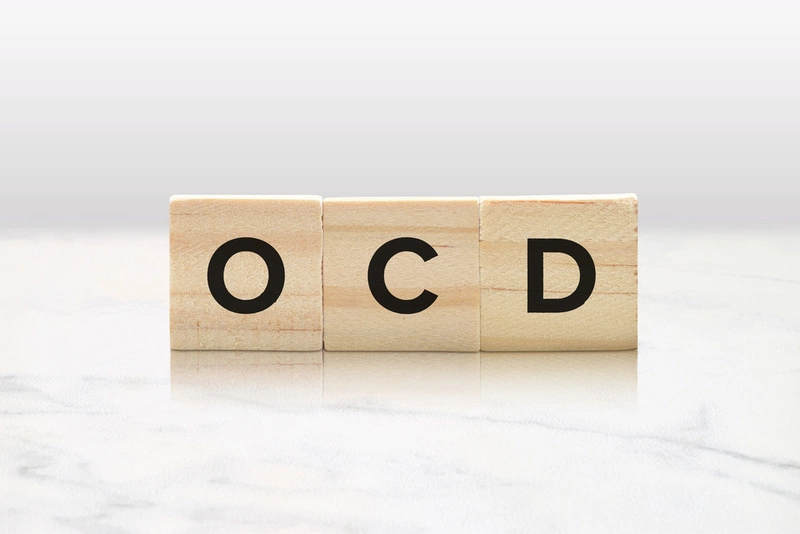Obsessive-Compulsive Disorder (OCD) and Obsessive-Compulsive Personality Disorder (OCPD) are two commonly confused disorders. Although both conditions share similar names, they have distinct differences that set them apart. For people who have these disorders, or for their loved ones, understanding the differences between these disorders can help them both better understand their condition and receive the best treatments available.
What is OCD?
Obsessive-Compulsive Disorder, or OCD, is a disorder in which a person’s life becomes fixated on obsessions, intense unwanted thoughts or feelings, and compulsions, actions that are meant to alleviate the obsessions. OCD affects approximately 2% of the population and the manifestation of OCD will be different for everyone. For example, one person might have a strong fear that their apartment will be broken into and will think about this possibility unless they are able to lock their front door 5 times, while another individual may have an intense fear of germs and may respond by washing their hands every time they enter a room.
In addition to their obsessions and compulsions, people with OCD may also experience:
- Overall levels of high anxiety
- Poor quality relationships
- Inability to maintain work or school commitments
- Depression
- High levels of discomfort when leaving home
What is OCPD?
OCPD, or Obsessive-Compulsive Personality Disorder, while similar to OCD, has specific deviations in manifestation. As a personality disorder, OCPD is associated more with consistent symptoms over a long time, significant harm, and challenges to treatment, as opposed to the obsessions and compulsions associated with OCD. OCPD is more often associated with perfectionism, and people with OCPD may feel an intense need for perfectionism in themselves and others around them.

OCPD symptoms may include:
- Strict adherence to the organization, attention to detail, and specific schedules
- A lack of leisure time as the person is focused on work
- Seeing situations in black and white; Being inflexible about morals and ethics
- Difficulty discarding old, broken, or worthless items
- Being unwilling to accept help from others
- Stubbornness
- Hoarding money
- Perfectionism leads to difficulties in happiness and healthy relationships
Are OCD and OCPD the Same?
While OCD and OCPD have many similarities, the two disorders are distinctly different. Both disorders involve a certain “obsession.” For individuals with OCD, this obsession could be any anxiety-inducing worry, while for individuals with OCPD, this obsession is usually focused on perfectionism. Both disorders will interfere with the personal and professional lives of those afflicted, though the struggles of someone with OCD will usually find that their disorder indirectly affects their life, by making them late to commitments or unable to leave their house, while someone with OCPD is more likely to have direct interpersonal conflicts stemming from their inability to compromise or accept imperfection.
How are OCD and OCPD diagnosed?
In order to determine whether a person struggles with OCD or OCPD, mental health professionals will guide the individual through a mental health evaluation and follow the diagnostic criteria present in the Diagnostic and Statistical Manual of Mental Disorders, fifth edition. The critical difference between the two disorders, however, lies with obsessions and compulsions. While a person with OCPD may have rigid behaviors, they will not engage in the excessive repetition associated with individuals who have OCD.
Another difference between OCD and OCPD is self-awareness. A person with OCD is usually aware of their obsessions and compulsions and the difficulties it causes, though they remain unable to stop it. An individual with OCPD, however, will not recognize anything unusual in their behavior and may vehemently believe that other individuals are responsible to change.

The impact of the disorder will also differ between OCD and OCPD. OCD will affect all areas of a person’s life and will make success in work, school, and relationships nearly impossible to maintain. OCPD, however, as it specifically relates to perfectionism and often pushes individuals to be extremely hardworking to their detriment, will usually correspond to improved school or work performance; they will still find, however, difficulties maintaining healthy personal relationships.
Is it possible to have both OCD and OCPD?
It is possible for a person to suffer from both OCD and OCPD. While the likelihood of overlap in these two disorders is not known, knowing that both involve strict adherence to specific behaviors may mean their co-occurrence is more likely. Luckily, the treatment options for these disorders are similar, as both involve some level of psychotherapy, though the goals of therapy sessions will differ depending on which disorder is targeted.
What are the treatment options for OCD and OCPD?
Psychotherapy is usually the first treatment option for both OCD and OCPD. The focus of therapy sessions, however, will differ depending on the diagnosis. OCD will usually involve a type of cognitive-behavioral therapy known as Exposure and Response Prevention. Through this therapy, individuals with OCD will be exposed to their obsessions, either realized or imagined, and will be discouraged from completing their compulsions.
For example, a person who compulsively washes their hands may be asked to touch something dirty and then refrain from washing their hands for a certain time. Eventually, as this practice is continued, the person will recognize that there is no immediate concern if they cannot wash their hands right away, and the compulsion will fade. A person with OCD may also be prescribed medication to help them handle their anxieties and compulsions.
When treating a person with OCPD, however, a therapist will usually focus instead on short-term goals, which may include reducing stress, encouraging healthy coping skills and positive relationships, and practicing communicating effectively and empathetically. With improvements, sessions can move on to unlocking the person’s personal history around perfectionism and breaking down harmful habits to reframe their need for control. Medications are usually not prescribed for individuals with OCPD.
Conclusion: OCD vs. OCPD
While Obsessive-Compulsive Disorder (OCD) and Obsessive-Compulsive Personality Disorder (OCPD) are similar personality disorders, there are distinct differences in the manifestations of each. OCD is characterized by obsessions and corresponding compulsions while OCPD is defined by a need for perfectionism. For people who have these disorders, understanding the differences between these disorders can help them both better understand their condition and receive the best treatments available.
